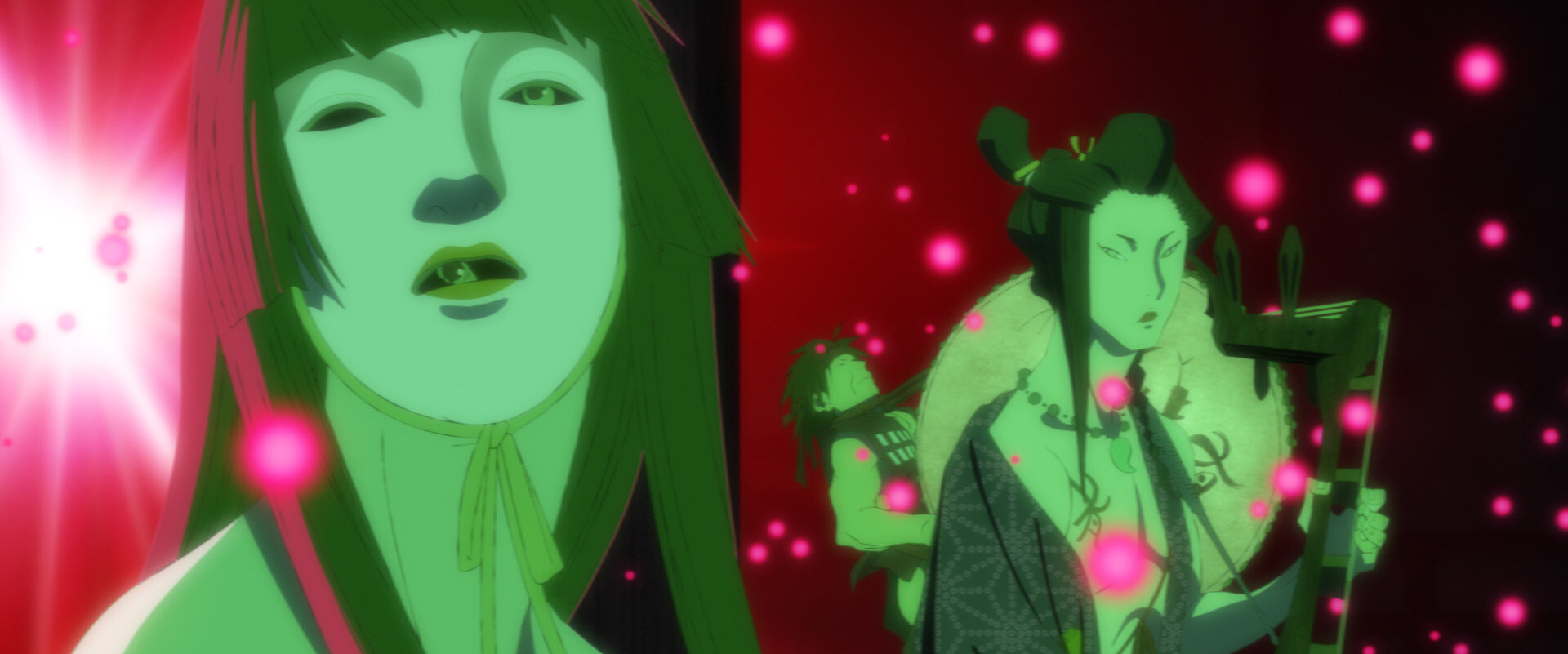
“Inu-Oh” (犬王) and The Politics of Art
To be completely honest, a lot of Masaaki Yuasa‘s 2021 film “Inu-Oh” completely flies over my head. But the music and art direction are a spectacle to behold.
So just how does one describe “Inu-Oh?” Well, it’s a 14th century Japanese rock opera. Which might initially sound off-putting– and it is a very experimental film, but stick with me here. The film uses 20th century music in the 14th century setting to show the avant-garde nature of the film’s protagonists. It is a rich musical experience
To give a basic summary, the film follows two disabled, marginalized artists, Tomona who is blind, and Inu-Oh (king of dogs) who is deformed. The art can become quite abstract during scenes that show how Tomona uses sound to “see.” The film starts with a strange prologue where we see a diving family recover a Heike treasure which blinds Tomona and kill his father. Years later Tomona sets off on a journey as a biwa priest to preserve the Heike stories. The biwa player later meets Inu-Oh. Inu-Oh has a habit of scaring off villagers with his deformities but is accepted by Tomona who cannot see him. Tomona learns Inu-Oh hears the restless spirits of the Heike soldiers and can lift the curse that made him deformed by performing their stories and making them known to the world. The two form a troupe and become rock stars. However, the reigning Ashikaga shogunate begins to censor the Heike clan’s histories and stories to maintain power. Soon enough the shogunate sets their sights on the troupe and forcibly disbands it, leading to Tomona’s beheading.
Ultimately, this is a movie about living according to your beliefs. To never stop fighting no matter what because you have a story to tell, beliefs to live by, a name to claim. And I find that inspirational. “Inu-Oh” is about staying true to yourself; this film embodies punk. Art has always been political, meaning it exists under political systems the way we all do, this film takes that to the extreme.
Another theme of the movie is lost stories. It makes you wonder how much of history is censored and how many stories have been lost. An example I always found interesting is how many people seem to think trans people only started existing recently because the Nazis destroyed tons of research on us.
Overall, “Inu-Oh” is about lost stories and political art told from the perspective of outcasts, going as far as to cast a transfem singer. I highly recommend this overlooked film.